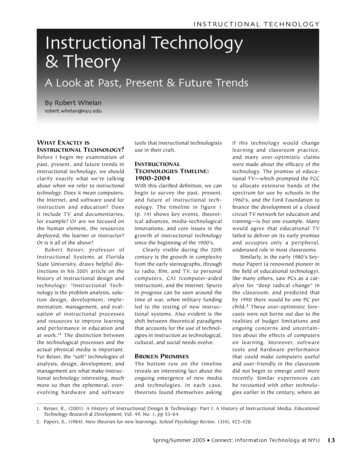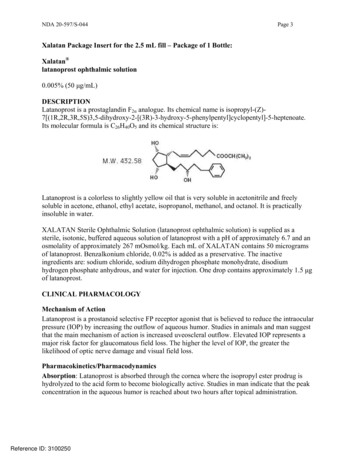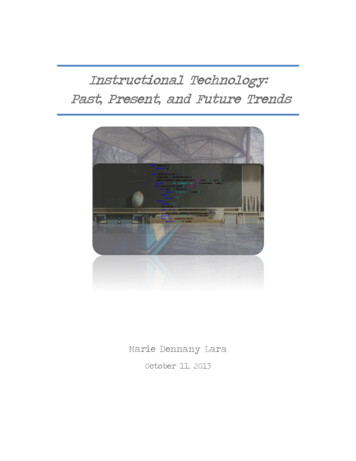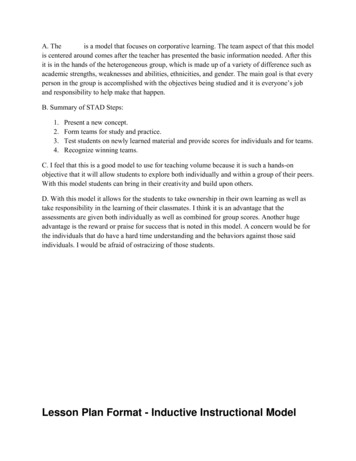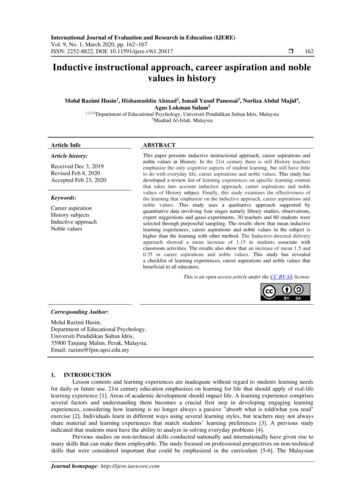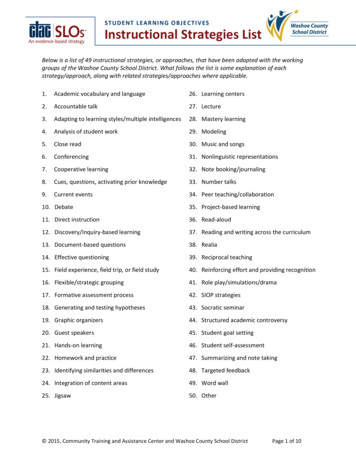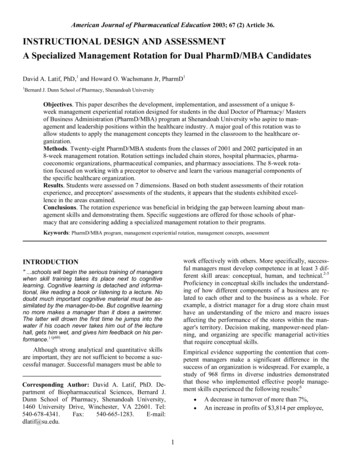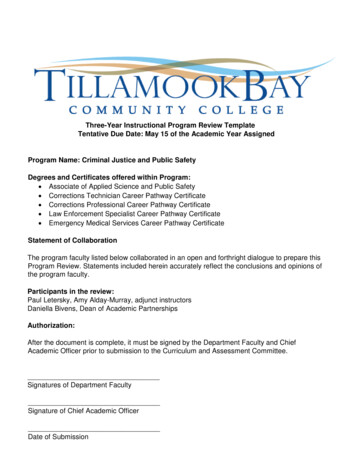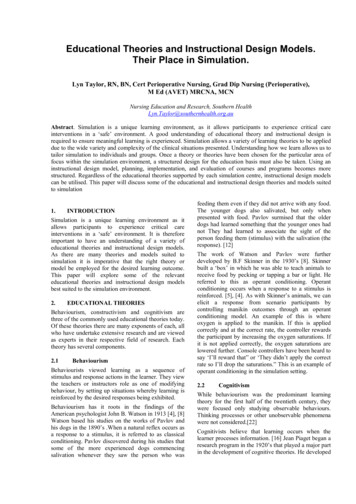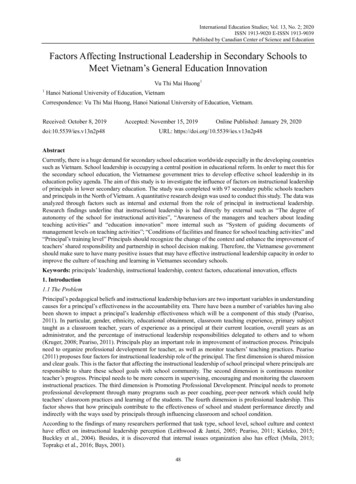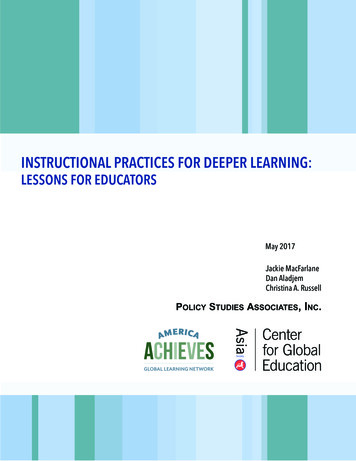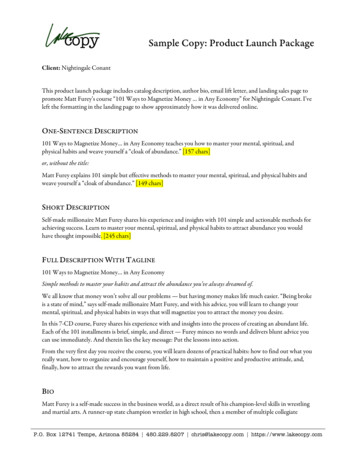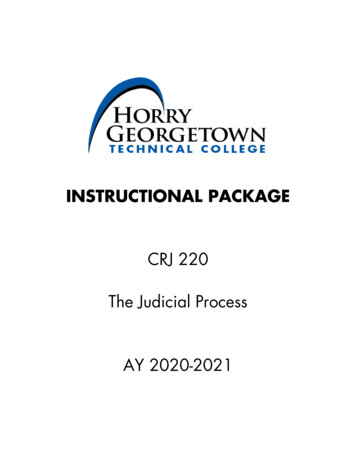
Transcription
INSTRUCTIONAL PACKAGECRJ 220The Judicial ProcessAY 2020-2021
INSTRUCTIONAL PACKAGEPart I: Course InformationEffective Term: AY 2020-2021COURSE PREFIX: CRJ 220COURSE TITLE: The Judicial ProcessCONTACT HOURS: 3.0CREDIT HOURS: 3.0RATIONALE FOR THE COURSE:The course is designed to provide students with a basic understanding of the courtsystems and operation in the U.S., including both federal and State. The course generallyexposes the student to the traditional procedures and processes found in all criminalcourts and South Carolina in particular.COURSE DESCRIPTION:This course includes an overview of the law-making function of the courts, the growth ofcommon law, the structure and organization of the courts, court processes andprocedures involved in criminal and civil cases, and the question of reform for theadministration of justice.PREREQUISITES/CO-REQUISITES:Online/Hybrid courses require students to complete the DLi Online Student Orientation prior tocompleting an online course. The DLi Online Student Orientation can be found in WaveNet,under the My Student tab.REQUIRED MATERIALS:Neubauer, D. W., & Fradella, H. F. (2019). America’s Courts and the CriminalJustice System. Independence, KY: Cengage.Please visit the BOOKSTORE online site for most current textbook information. Use the direct linkbelow to find textbooks.Enter the semester, course prefix, number, and section when prompted, and you will be linked tothe correct textbook.ADDITIONAL REQUIREMENTS:CRJ 220 – Judicial Process does not have additional costs other than textbook, tuition, and fees.April 2020
TECHNICAL REQUIREMENTS:All criminal justice courses, whether traditional, hybrid, or online, require students to access thecourse in D2L through a personal computer. Therefore, students should have reliable access to acomputer with a dependable Internet connection to be successful in this course or any criminaljustice course. Students will be required to access, download, or print material from the course inD2L, which is accessible through MyCourses and the student’s WaveNet account. Students shouldpay particular attention to the course outline under Content as well as the course calendar.Students will be able to monitor grades and attendance through the course in D2L. Criminaljustice courses, whether traditional, hybrid, or online, require students to complete some, if notall, course work – assignments, exams, and other activities - through an online environment inD2L. Traditional and hybrid require students to complete a portion of the required work online.The amount of online activity depends on the format of the course; therefore, students should payparticular attention to the course information and documents. Courses with an online componentmove very rapidly with graded requirements typically due each week. Students must be awareof the calendar and mindful of updates and announcements; therefore, a student must haveaccess to a reliable computer and a dependable Internet connection. Criminal justice courses useD2L as a platform for course activities.When having technology problems find another computer. Computers are open to students atnumerous locations on all three campuses of Horry-Georgetown Technical College, includingopen computer labs and libraries. There are computers available for use in other public locations,including public libraries. A final option would be to contact a friend or relative to borrow acomputer. When technology issues are related to the system (i.e., D2L and WaveNet), and notthe result of a broken computer, you should contact TECH Central at (843) 349-8324 orhttps://www.hgtc.edu/admissions/student information/index.html. Technology issues ortechnical problems are not an acceptable excuse should there be a course requirement thatmust be completed through D2L. When having difficulty with accessing the course or itscomponents, or email function, it is a good idea to notify the course professor about the problemor difficultySTUDENT IDENTIFICATION VERIFICATION:Students enrolled in online courses will be required to participate in a minimum of one (1)proctored assignment and/or one (1) virtual event to support student identification verification.Please refer to the Course Instructor’s Addendum for information regarding this requirement.COURSE ETIQUETTE AND ETHICAL BEHAVIOR:According to the Student Code for the South Carolina Technical College System (3-2-106.1),there are numerous forms of academic misconduct including, but not limited to, cheating on tests,plagiarism, collusion, and fabrication of information (HGTC Catalog, 2020, p. 35).Furthermore, as described under Section III, Student Conduct Regulations, inappropriate behaviorcan include but is not limited to (1) abuse of the privilege of freedom of speech or assembly, (2)falsification of information and other acts intended to deceive, (3) actions which endangerstudents and the college community, (4) infringement of rights of others, and (5) other acts whichcall for discipline (HGTC Catalog, 2020, p. 35).April 2020
All criminal justice students are expected to conduct themselves in a professional and ethicalmanner at all times in word or action. The standards of professional and ethical behavior will beenforced. Any violation associated with inappropriate behavior including but not limited tostatements or remarks made in class, during internships, or through emails, postings includingFacebook or social media sites, text messages, or other communications will not be tolerated.At the discretion of the professor of record, academic misconduct or inappropriate behavior maybe reported in writing as a violation of the Student Code under Section IV, which could result indisciplinary action (HGTC Catalog, 2020, p. 37).All alleged acts of sexual violence or sexual harassment must be reported to the Title IXCoordinator or designee. Per the South Carolina Technical System Student Code Procedures forAddressing Alleged Acts of Sexual Violence and Sexual Harassment (3-2-106.2), “students mayalso contact any responsible employee, who has an obligation to report any claim of sexualharassment or sexual assault to the Title IX Coordinator, or designee” (HGTC Catalog, 2020, p.40).Part II: Student Learning OutcomesCOURSE LEARNING OUTCOMES AND ASSESSMENTS*:UNIT I – LAW, CONTROVERSY, ADVERSARIAL JUSTICE, AND COURTS Material Covered: Neubauer & Fradella, Chapters 1-4. Student Outcome: Describe how the courts are related to the other componentsof the criminal justice system.Student Outcome: Explain the importance of the adversary system.Student Outcome: Describe and identify the four primary types of jurisdiction:geographical, subject matter, personal, and hierarchical.Student Outcome: Analyze the impact the federal courts have on theadministration of criminal justice at the state and local levels through their federalquestion jurisdiction.Student Outcome: Describe the four layers of a typical state court system.Describe and identify the major types of courts found in the U.S.Student Outcome: Describe the types of cases handled by the trial courts oflimited jurisdiction.Student Outcome: Describe the five ways that juvenile courts differ from adultcourts.Student Outcome: Discuss how states vary in terms of when a juvenile may betransferred to adult court for prosecution. April 2020
Assessment: Assignment Discussion #1Assessment: Assignment Discussion #2Assessment: Exam #1UNIT II – DYNAMICS OF COURTHOUSE AND THE ACTORS Material Covered: Neubauer & Fradella, Chapters 5-8. Student Outcome:Student Outcome:Student Outcome:system.Student Outcome:U.S.Student Outcome:Student Outcome:the right to counsel.Student Outcome:criminal defendants.Student Outcome:group.Student Outcome:selection. Analyze the importance of assembly-line justice.Describe the strengths and weaknesses of speedy trial laws.Describe why ethics is important to the American legalDiscuss the two major characteristics of prosecutors in theAnalyze the principal factors affecting prosecutorial ethics.Identify and describe the four major legal issues surroundingAnalyze the importance of legal ethics to the defense ofDiscuss the role of the judge within the courtroom workAnalyze the consequences of different methods of judicialAssessment: Assignment Discussion #3Assessment: Assignment Discussion #4Assessment: Exam #2UNIT III – PARTICIPANTS, PRETRIAL, DISCOVERY, AND PLEA BARGAIN Material Covered: Neubauer & Fradella, Chapters 9-12. Student Outcome: Discuss how many victims and witnesses view the courtprocess and how these participants are many times viewed by the court.Student Outcome: Identify three types of programs designed to aid victims andwitnesses in coping with the criminal justice process, and explain why some viewthese programs as manipulating victims.Student Outcome: List and describe the four (4) ways that criminals areformally charged in Court.Student Outcome: Describe the four layers of the criminal justice wedding April 2020
cake.Student Outcome: Differentiate formal and informal discovery and the reasonswhy both are used in criminal cases.Student Outcome: Identify the types of evidence subject to mandatory criminaldiscovery.Student Outcome: Differentiate between the three (3) most common types ofplea agreements, and identify the major factors influencing bargaining anddiscretion.Student Outcome: Discuss the importance of Boykin v. Alabama. Assessment: Assignment Discussion #5Assessment: Assignment Discussion #6Assessment: Exam #3 UNIT IV – TRIALS, SENTENCING AND APPELLATE REVIEW Material Covered: Neubauer & Fradella, Chapters 13-15. Student Outcome: Analyze and describe the scope of the right to a trial by juryin a criminal case.Student Outcome: Summarize the basic rules of evidence concerningtrustworthiness and relevance of evidence.Student Outcome: List at least three major issues related to imprisonment as asentence in the United States.Student Outcome: Summarize the two U.S. Supreme Court rulings from the1970s on capital punishment that led to the bifurcated process for death penaltysentencing.Student Outcome: Identify the major alternatives to imprisonment.Student Outcome: Discuss the issues of sentencing disparities anddiscrimination in sentences based on factors such as race, gender, sex, education,and socioeconomic status.Student Outcome:. Describe the two primary functions of appeals.Student Outcome: Compare and contrast appeals and post-conviction reviewprocesses. Assessment: Assignment Discussion #7Assessment: Assignment Discussion #8Assessment: Exam #4 (Final)April 2020
Part III: Grading and AssessmentEVALUATION (COURSE GRADING):*Students’ performance will be assessed, and the weighted associated with the various measureslisted below.EVALUATION*Tests . Discussion Assignments .Court Observation Paper .Total45%40%15%100%*Students, for the specific number and type of evaluations, please refer to theInstructor’s Course Information Sheet.GRADING SYSTEM:90-100 80- 89 .70- 79 .60- 69 Below 60 ABCDFGrades earned in courses impact academic progression and financial aid status. Beforewithdrawing from a course, be sure to talk with your instructor and financial aid counselor aboutthe implications of that course of action. Ds, Fs, Ws, WFs and Is also negatively impact academicprogression and financial aid status.The Add/Drop Period is the first 5 days of the semester for full term classes. Add/Drop periodsare shorter for accelerated format courses. Please refer to the academic calendar for deadlines foradd/drop. You must attend at least one meeting of all of your classes during that period. If youdo not, you will be dropped from the course(s) and your Financial Aid will be reducedaccordingly.Part IV: AttendanceHorry-Georgetown Technical College maintains a general attendance policy requiring students tobe present for a minimum of 80 percent (80%) of their classes in order to receive credit for anycourse. Due to the varied nature of courses taught at the College, some faculty may require up to90 percent (90%) attendance. Pursuant to 34 Code of Federal Regulations 228.22 - Return toApril 2020
Title IV Funds, once a student has missed over 20% of the course or has missed two (2)consecutive weeks, the faculty are obligated to withdraw the student, and a student may not bepermitted to re-enroll. Instructors define absentee limits for their class at thebeginning of each term; please refer to the Instructor Course Information Sheet.For online and hybrid courses, check your Instructor’s Course Information Sheet for anyrequired on-site meeting times. Please note, instructors may require tests to be taken at approvedtesting sites, if you use a testing center other than those provided by HGTC, the Center maycharge a fee for its services.Part V: Student ResourcesTHE STUDENT SUCCESS AND TUTORING CENTER (SSTC):The SSTC offers to all students the following free resources:1.Academic tutors for most subject areas, Writing Center support, and collegesuccess skills.2.Online tutoring and academic support resources.3.Professional and interpersonal communication coaching in the EPIC Labs.Visit the Student Success & Tutoring Center website for more information. To schedule tutoringappointments using TutorTrac, visit the Student Services tab in WaveNet. Email sstc@hgtc.edu orcall SSTC Conway, 349-7872; SSTC Grand Strand, 477-2113; and SSTC Georgetown, 5201455, or go to the Online Resource Center to access on-demand resources.STUDENT INFORMATION CENTER: TECH CentralTECH Central offers to all students the following free resources:1. Getting around HGTC: General information and guidance for enrollment!2. Use the Online Resource Center (ORC), including scheduled technology training,Office 365 support, password resets, and username information.3. Drop-in technology support or scheduled training in the Center or in class.4. In-person workshops, on
All criminal justice courses, whether traditional, hybrid, or online, require students to access the course in D2L through a personal computer. Therefore, students should have reliable access to a computer with a dependable Internet connection to be successful in this course or any criminal justice course. Students will be required to access, download, or print material from the course in
